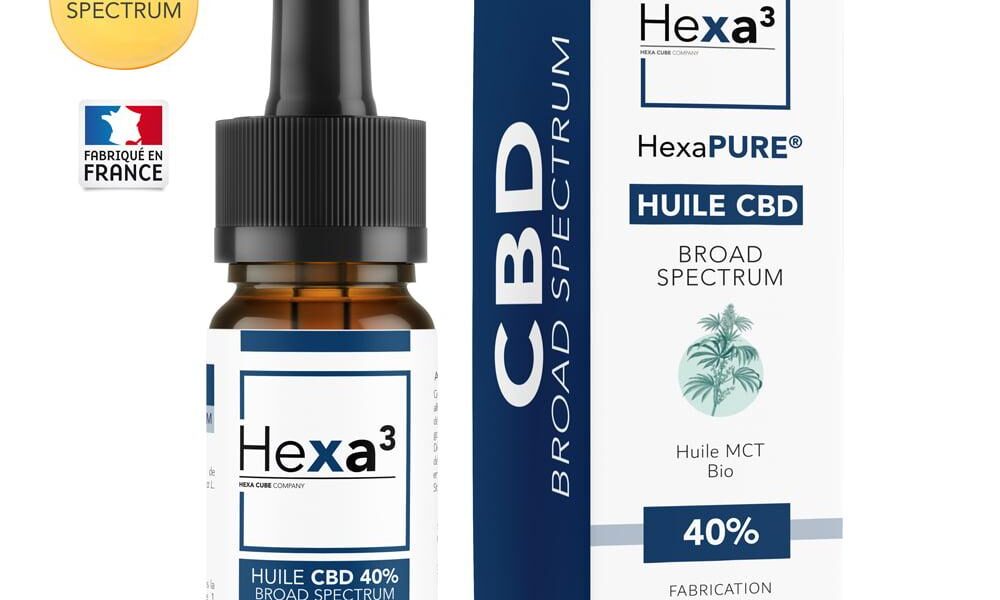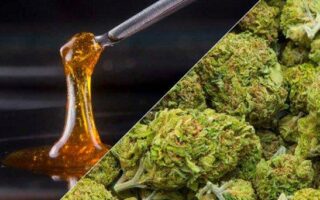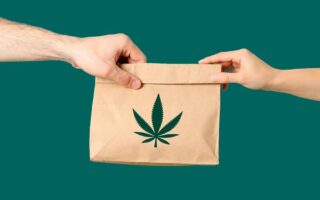In recent years, the discussion surrounding CBD oil has swirled through both health circles and the broader public consciousness, igniting debates that weave together threads of science, legislation, and personal experience. With its promising potential to alleviate a range of ailments—from anxiety to chronic pain—CBD oil has become a darling of the wellness industry. Yet, caught in the complexities of regulatory definitions and legal classifications, many consumers find themselves asking a fundamental question: Is CBD oil a Schedule I drug? This article aims to untangle the intricate web of laws and guidelines that categorize CBD, examining the current legal status, scientific research, and the implications for users in an ever-evolving landscape. Join us as we explore the nuances of this multifaceted topic to clarify what it means for consumers, advocates, and lawmakers alike.
Table of Contents
- Understanding the Legal Classification of CBD Oil
- The Difference Between CBD and THC in Drug Scheduling
- Navigating State Laws and Federal Regulations on CBD
- Recommendations for Consumers: Choosing the Right CBD Products
- Q&A
- Insights and Conclusions
Understanding the Legal Classification of CBD Oil
The legal classification of CBD oil is often a source of confusion, primarily due to its relationship with cannabis and the various regulations that govern it. The primary factor determining whether CBD oil is considered a controlled substance lies in its source and THC concentration. While CBD derived from hemp with less than 0.3% THC is federally legal in the United States, CBD obtained from marijuana plants may still fall under the definition of a Schedule I drug. This duality is crucial for both consumers and producers who seek to navigate the legal landscape effectively.
Understanding the nuances of federal versus state law is pivotal in determining CBD oil’s legal status. Various states have enacted their own laws regarding the purchase and use of CBD products, which can create a patchwork of regulations. To shed light on this complexity, here’s a brief overview:
| Source of CBD | THC Content | Legal Status |
|---|---|---|
| Hemp | Less than 0.3% | Legal Federally |
| Marijuana | More than 0.3% | Potentially Illegal |
Ultimately, it is essential for consumers to stay informed about both federal regulations and local laws concerning CBD products. With ongoing discussions around cannabis legalization and the evolving legal landscape, clarity on this subject will continue to develop. Keeping abreast of current laws, consumer guidelines, and product sourcing will aid individuals in making informed decisions when it comes to CBD oil.
The Difference Between CBD and THC in Drug Scheduling
When discussing the legal status of cannabinoids, the differences in drug scheduling between CBD and THC play a crucial role. THC, or tetrahydrocannabinol, is the primary psychoactive component of cannabis that induces the classic “high.” Due to its psychoactive effects, THC is classified as a Schedule I substance under the Controlled Substances Act in the United States. This classification implies that it is deemed to have a high potential for abuse and no accepted medical use, making it heavily regulated. CBD, on the other hand, is a non-psychoactive cannabinoid primarily derived from hemp. Much like THC, CBD has been used for various medicinal purposes; however, it has generated a different legal framework due to the 2018 Farm Bill, which legalized hemp and hemp-derived products containing less than 0.3% THC. As a result, CBD is often found in Schedule VI or categorized as an uncontrolled substance in many states, demonstrating a significant shift in how these compounds are perceived legally.
To illustrate the stark contrast in the scheduling of these two cannabinoids, consider the following comparison:
| Cannabinoid | Drug Schedule | Legal Status |
|---|---|---|
| THC | Schedule I | Heavily Regulated |
| CBD | Unscheduled*/Schedule VI | More Accessible |
The differing legal classifications contribute to the ongoing conversation about the safety, regulation, and potential therapeutic benefits of both cannabinoids. As research continues to unfold, the distinctions in scheduling may evolve, reflecting a broader understanding of cannabis and its compounds in the context of public health and legal frameworks.
Navigating State Laws and Federal Regulations on CBD
The legal landscape surrounding CBD oil is a complex interplay of state laws and federal regulations. While the 2018 Farm Bill legalized hemp-derived CBD products with less than 0.3% THC at the federal level, individual states have adopted varying standards. This means that, in some states, CBD is readily available in stores and online, while in others, purchasing CBD products may be restricted or entirely prohibited. It is vital for consumers and businesses alike to stay informed about their state’s specific regulations, as non-compliance can lead to legal issues.
Furthermore, the definition of what constitutes CBD products can also differ based on state policy. Certain states may require strict labeling, testing, and licensing for CBD oil manufacturers and retailers, ensuring quality and safety standards are met. Here are some important considerations regarding CBD legality:
- State Authority: Each state has its own laws affecting CBD oil production and sale.
- THC Content: Federal law allows up to 0.3% THC in products for them to be classified as hemp-derived.
- Health Claims: Marketing CBD oil with unverified health claims can lead to regulatory scrutiny.
| State | CBD Legality | Notes |
|---|---|---|
| California | Legal | Strict testing and labeling required. |
| Texas | Legal | Caveats on THC levels apply. |
| Idaho | Restricted | Very limited availability. |
Recommendations for Consumers: Choosing the Right CBD Products
When exploring the world of CBD products, it’s essential to prioritize quality and safety. Look for brands that provide third-party lab testing results, as this transparency demonstrates commitment to product integrity and consumer knowledge. Ensure that the products are derived from hemp rather than marijuana, as this minimizes the risk of higher THC levels. Additionally, consider broad-spectrum or isolate options if you’re concerned about THC, while also checking for a clear and concise ingredient list without harmful additives.
Aside from quality, it’s important to assess the appropriate form of CBD for your needs. Here are some popular options:
- CBD Oil/Tinctures: Quick absorption and flexible dosing.
- Capsules: Convenient for consistent dosing, but slower onset.
- Topicals: Ideal for targeted relief, particularly for pain or skin issues.
- Edibles: A tasty option for those seeking longer-lasting effects.
Before making a purchase, check consumer reviews and consult with professionals, particularly if you are taking other medications. Remember that each individual’s response to CBD may vary significantly, so it’s wise to start with lower doses and gradually increase as needed.
Q&A
Q&A: Is CBD Oil a Schedule I Drug?
Q1: What is CBD oil, and where does it come from?
A1: CBD, or cannabidiol, is a naturally occurring compound found in the cannabis plant. It is extracted primarily from hemp, a variety of cannabis that is low in tetrahydrocannabinol (THC), the psychoactive compound responsible for the “high” associated with marijuana. Unlike THC, CBD does not produce intoxicating effects, which has contributed to its popularity in wellness products.
Q2: What does it mean for a substance to be classified as Schedule I?
A2: In the United States, the Controlled Substances Act categorizes drugs into five schedules based on their potential for abuse, status in medical use, and safety or dependence liability. Schedule I substances are considered to have a high potential for abuse, no accepted medical use, and a lack of accepted safety for use under medical supervision.
Q3: Is CBD oil classified as a Schedule I drug?
A3: The classification of CBD oil can be complex. While CBD derived from hemp containing less than 0.3% THC is federally legal, the Drug Enforcement Administration (DEA) has stated that CBD extracted from cannabis with higher THC content, or any form not in compliance with the Agricultural Improvement Act of 2018 (often referred to as the Farm Bill), can still be classified as a Schedule I drug. Therefore, not all CBD oil is considered Schedule I, but some might be depending on its source and THC content.
Q4: How does the 2018 Farm Bill impact CBD oil?
A4: The 2018 Farm Bill legalized hemp and hemp-derived products, including CBD oil with less than 0.3% THC at the federal level. This landmark legislation removed hemp from the definition of marijuana in the Controlled Substances Act, effectively allowing for the commercialization of legal hemp-derived CBD products. This means that most commercially available CBD oil now falls outside of the Schedule I classification as long as it meets the THC criteria set by the Farm Bill.
Q5: Are there any states where CBD oil remains illegal?
A5: Yes, while the Farm Bill has legalized hemp-derived CBD at the federal level, individual states have the power to regulate or prohibit its sale and use. Some states may still impose restrictions on CBD oil or have not fully embraced its legal status, meaning that legality can vary significantly from one state to another.
Q6: What should consumers know about purchasing CBD oil?
A6: Consumers should be diligent and informed when purchasing CBD oil. It’s essential to check the product’s sourcing, ensure it meets the THC content regulations, and look for third-party lab testing results to verify its potency and purity. Understanding state laws is also crucial to avoid any legal pitfalls, as some states may have specific regulations regarding the sale and use of CBD products.
Q7: What does the future hold for CBD oil and its classification?
A7: As the hemp industry continues to grow and more research is conducted on the benefits and risks associated with CBD, there may be further changes to its legal status and classification. Legislative developments, along with public understanding and acceptance of cannabis-derived products, could influence future regulations, potentially leading to a clearer path for CBD oil in various contexts.
Final Thoughts:
The question of whether CBD oil is a Schedule I drug is nuanced and contingent on various factors, including its origin and regulatory status. Understanding the legal landscape can help consumers make informed choices about the products they use and the potential benefits they seek from CBD oil.
Insights and Conclusions
In the evolving landscape of cannabis legislation and understanding, the classification of CBD oil continues to stir debate among policymakers, health experts, and consumers alike. The complexities surrounding its legal status as a Schedule I drug reflect not just the intricacies of law, but also the rapid advancements in scientific research and the growing public interest in the therapeutic benefits of hemp-derived compounds. As we’ve explored throughout this article, while CBD oil is now largely seen as distinct from its more controversial cousin, THC, the nuances of regulation still leave room for uncertainty. Ultimately, whether viewed through the lens of legality, medicinal potential, or personal choice, the journey of CBD oil invites us to engage in ongoing dialogue about wellness, science, and the future of natural remedies. As we move forward, staying informed and advocating for clear, evidence-based policies will be essential in shaping a balanced approach to this multifaceted issue.



